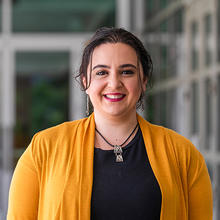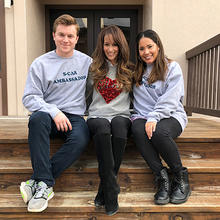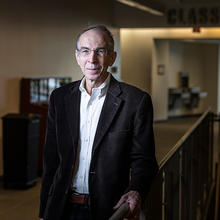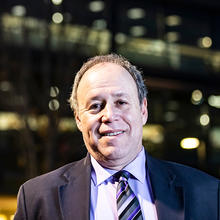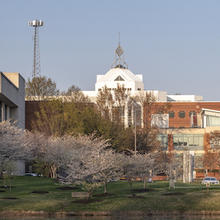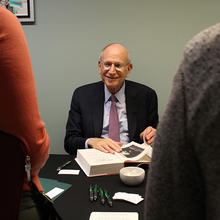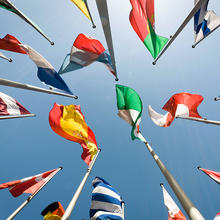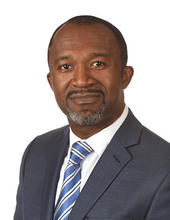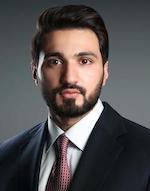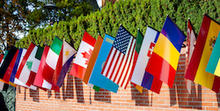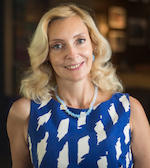Carter School News
- May 14, 2019During the war in the South Caucasus, and particularly the Nagorno-Karabakh conflict, closed borders and a shortage of resources became the norm for Armenians like Margarita Tadevosyan.
- March 27, 2019George Mason University has a large student body—more than 37,000 people—but that doesn’t mean it’s hard to find community. And that’s especially true for the S-CAR Ambassadors.
- March 6, 2019What would it take for one group in a conflict to be more compassionate toward their “enemy”? Researchers from George Mason University’s School for Conflict Analysis and Resolution (S-CAR) and the Department of Psychology are heading to Rondine—a two-year “laboratory for peace”—to find out.
- February 25, 2019The Holocaust had ended by the time George Mason University professor Marc Gopin was a child, but the suffering it caused his family, neighbors and teachers had not.
- January 22, 2019Amadu Koroma was only three at the start of the Sierra Leone War, when his uncle carried him on his shoulders as their family fled to Guinea for safety. Though the war ended in 2002, the consequences still affect Koroma, and they motivated him to make the most of his education.
- January 22, 2019There’s a familiar rule at most family gatherings: Don’t talk about religion or politics. But for the past 10 years, the Dialogue & Difference class and project at George Mason University have been turning that rule on its head.
- October 11, 2018Harry Truman was Jimmy Carter’s political hero, according to Stuart Eizenstat, Carter’s chief domestic policy adviser, and he sees parallels between the two leaders. “Both presidents left office highly unpopular,” said Eizenstat, author of “President Carter: The White House Years.” “Truman is now remembered much more for his achievements than for his failures, and I hope that my book will have a similar reassessment of Jimmy Carter as president.”
- October 1, 2018When George Mason University got a message in February from The New School that scholars abroad were being persecuted and needed a safe haven to continue their lives and academic work, the response was a definitive “yes” to welcome them.
- April 5, 2021Growing up in the slums of Cameroon, Joseph Sany said he witnessed urban violence and police oppression regularly. He heard about genocide in Rwanda, and he saw more violence firsthand when he worked with NGOs and visited countries like Liberia and Sierra Leone during civil war.
- April 2, 2021A few days after Khalid Noor was born in Takhar, Afghanistan, the Taliban seized the province, and his family had to escape to another region on foot. “We were constantly moving from city to another city,” he said. “When one district was taken or collapsed, we had to move to another.” It wasn’t an ideal life, but Noor is motivated to change that for future generations—and he’s negotiating with the Taliban to do so.
- March 18, 2021George Mason University’s Carter School for Peace and Conflict Resolution will host its Spring 2021 Peace Week virtually March 22-26, focusing on how to foster anti-racism approaches in the field of conflict resolution in the United States and around the world.
- March 8, 2021The eastern region of Ukraine has been an intense battleground since 2014, when Russia controversially annexed the Ukrainian peninsula of Crimea and invaded the Donbass region in eastern Ukraine. Though a ceasefire was called, it has been violated daily. More than 10,000 people have died and roughly 1.6 million are registered as internally displaced people (IDP). But a step toward hope and peace may be on the horizon, thanks to George Mason University’s Carter School for Peace and Conflict Resolution, and their new project funded by a $50,000 grant from the U.S. Embassy in Ukraine.

